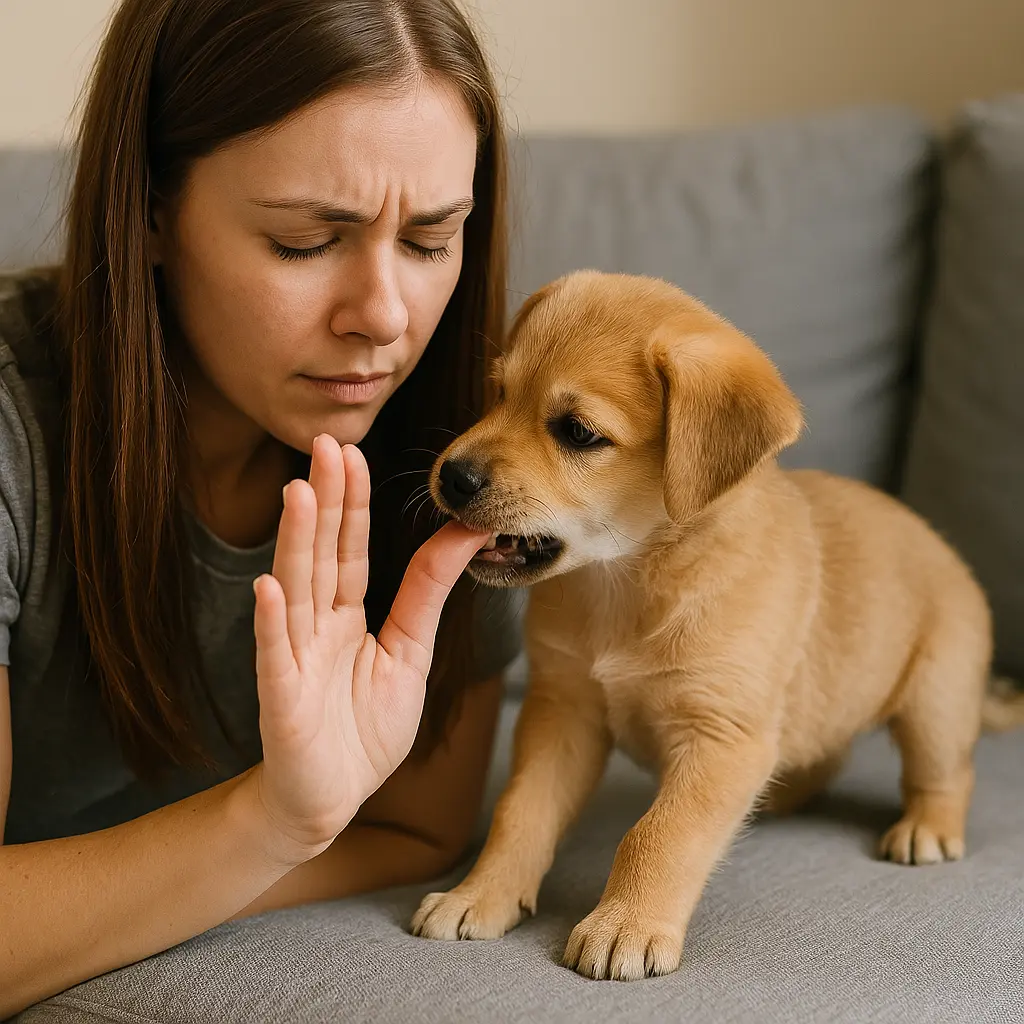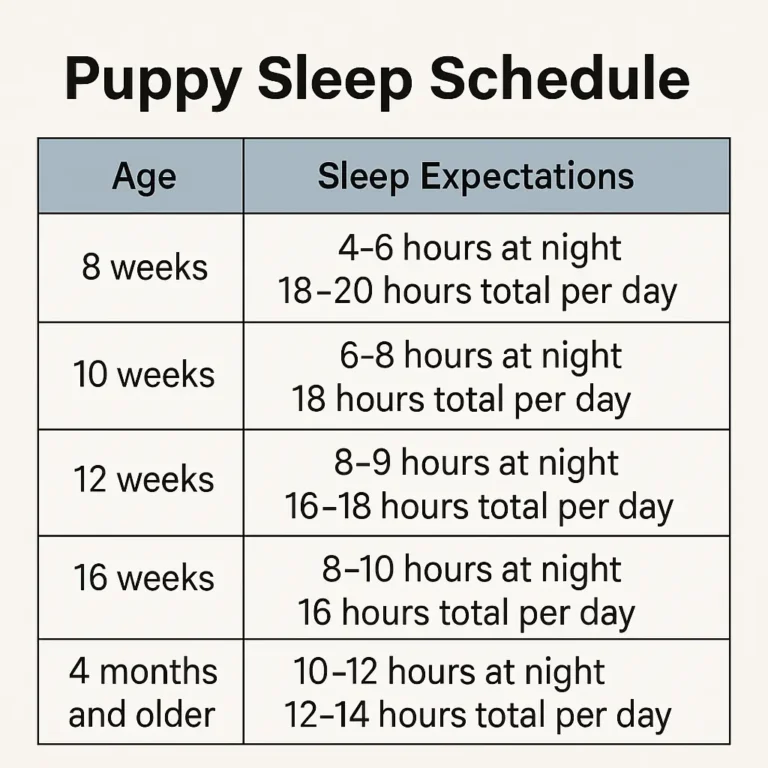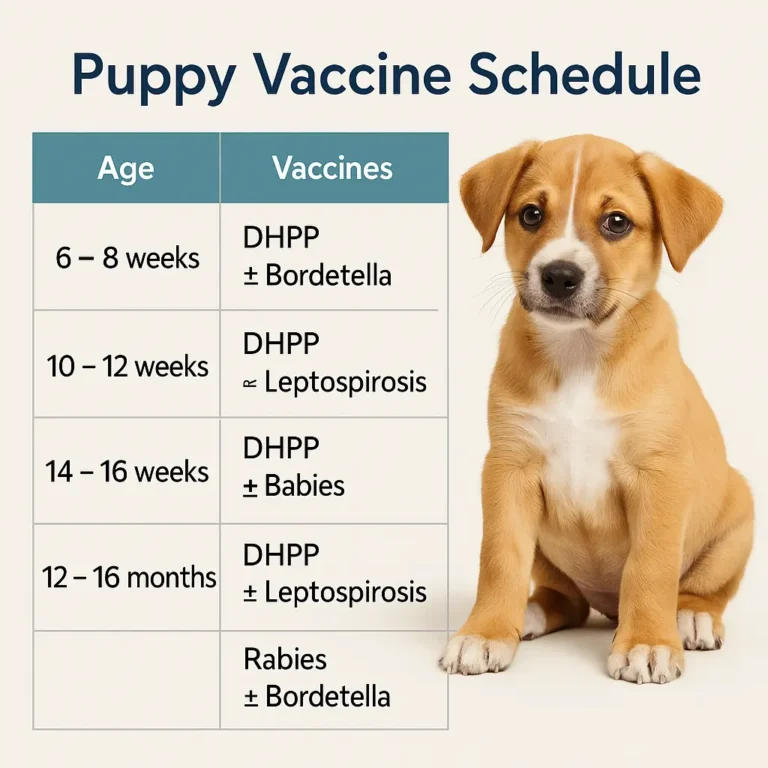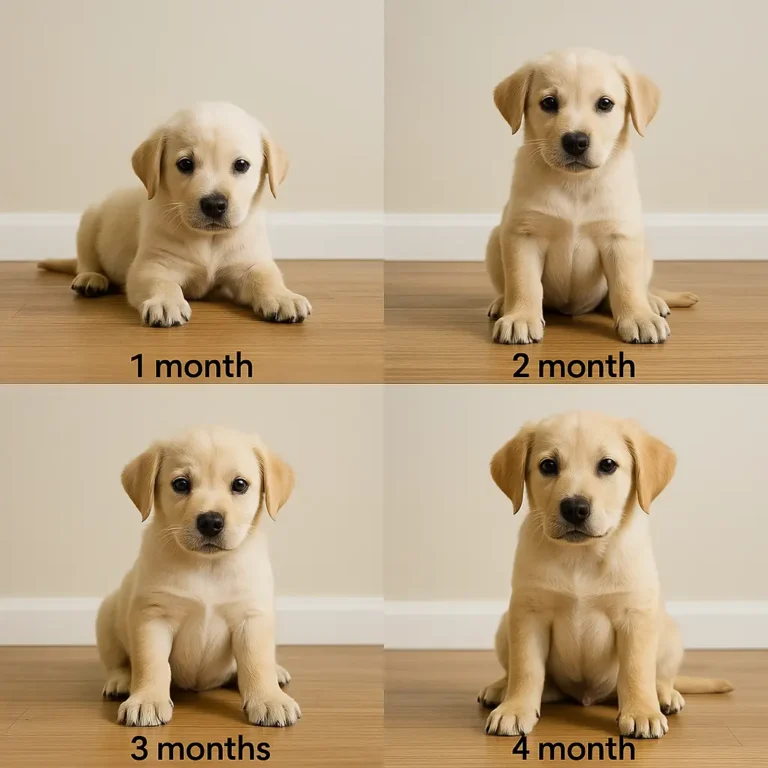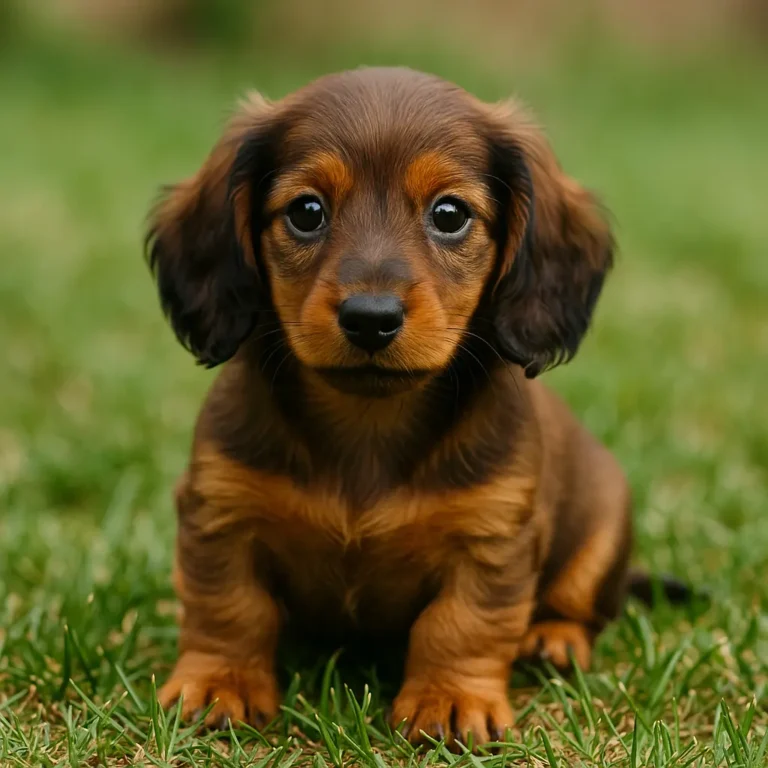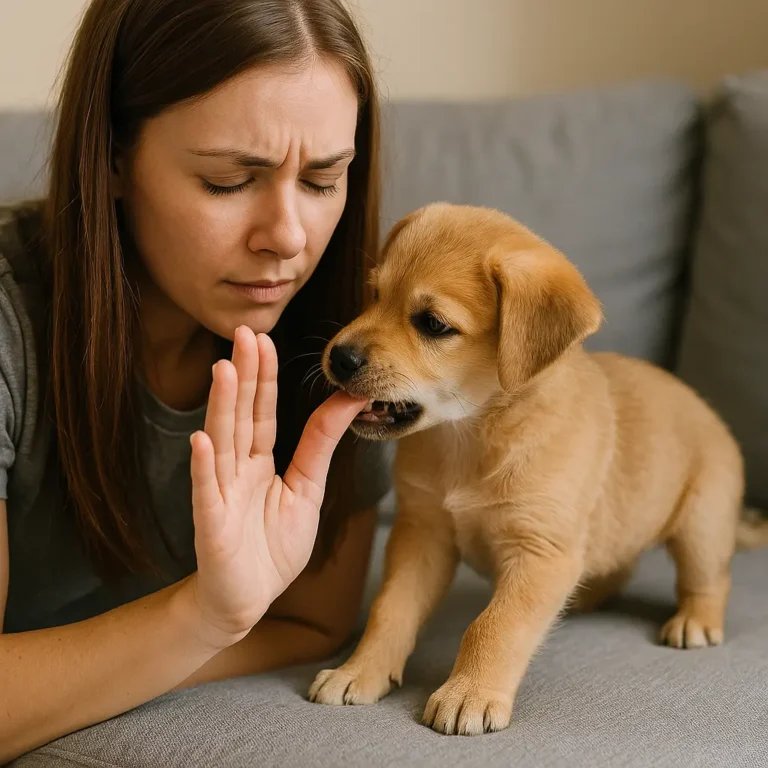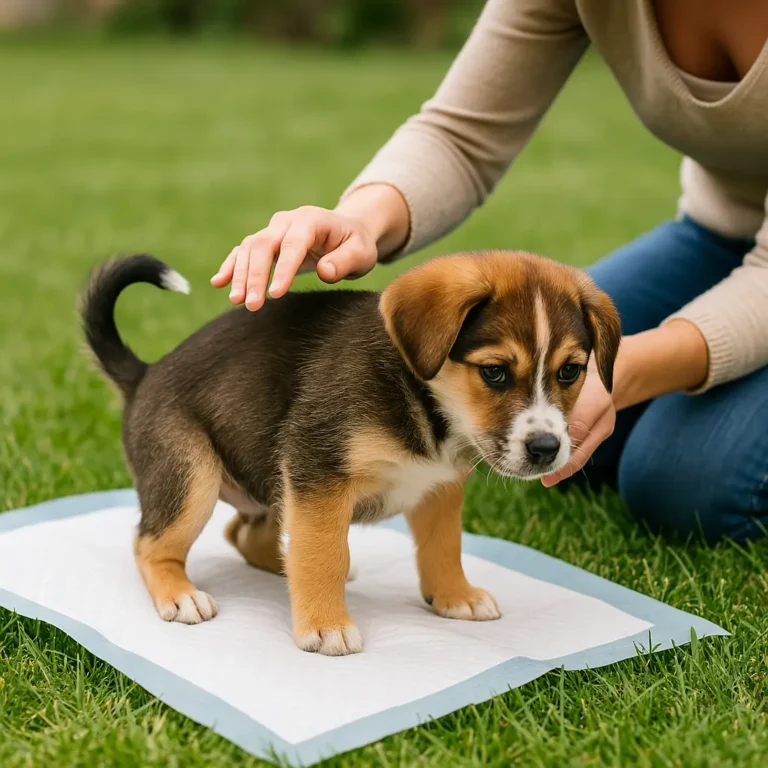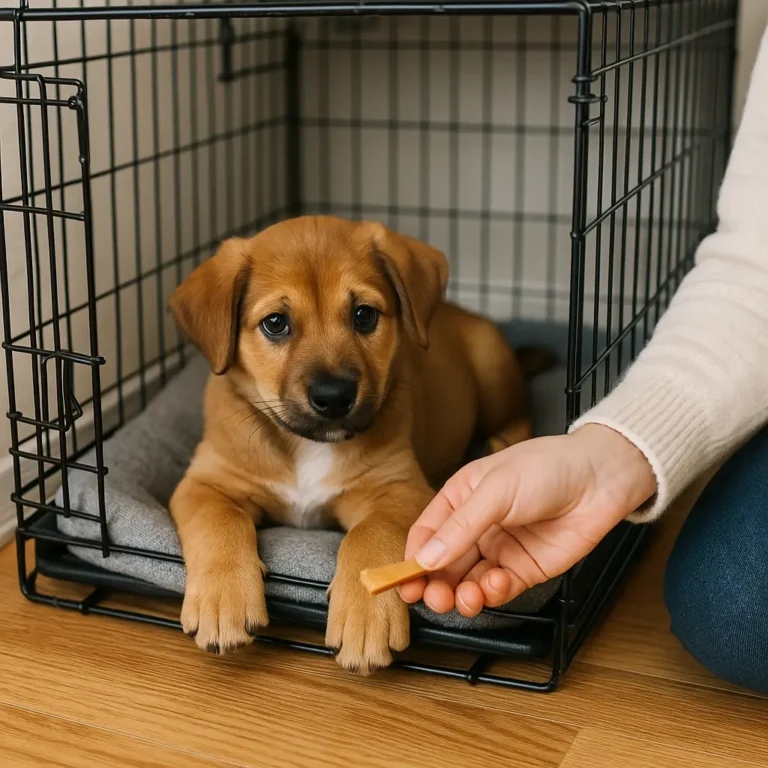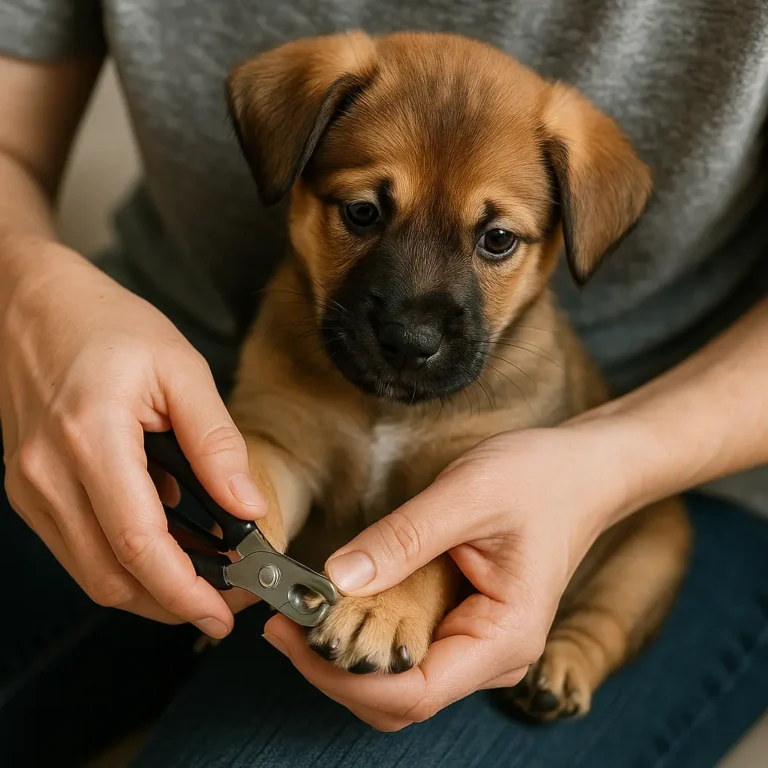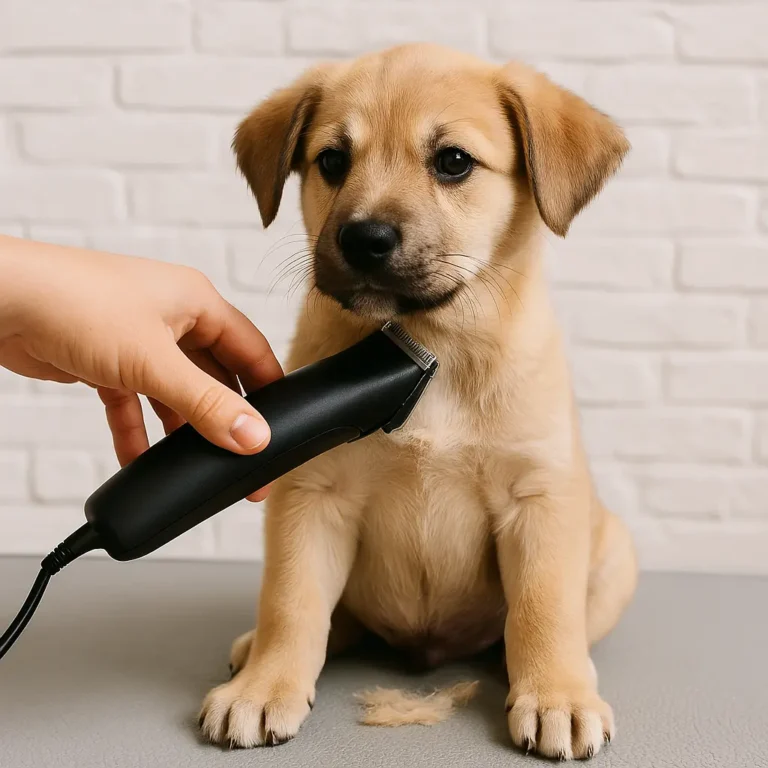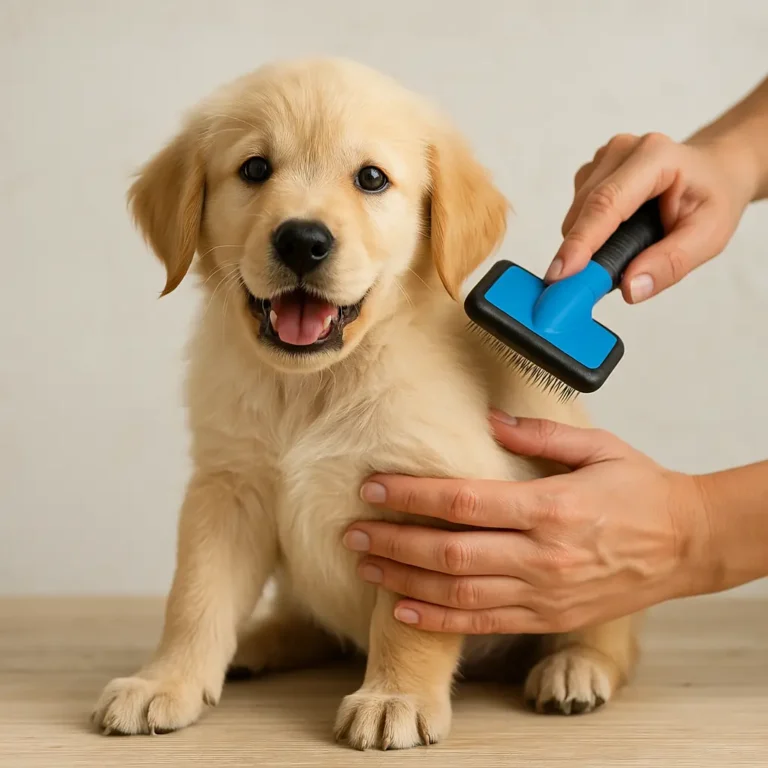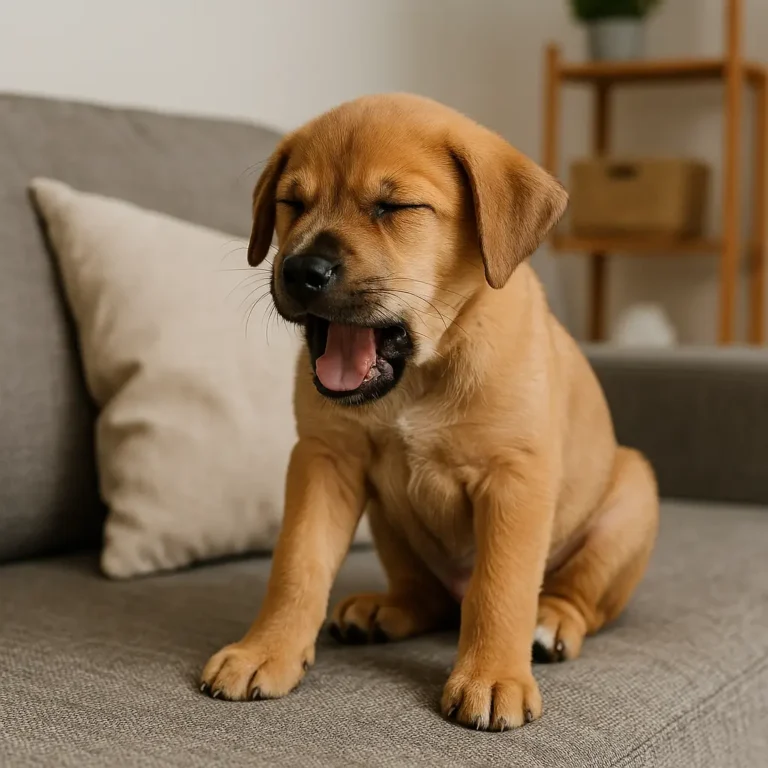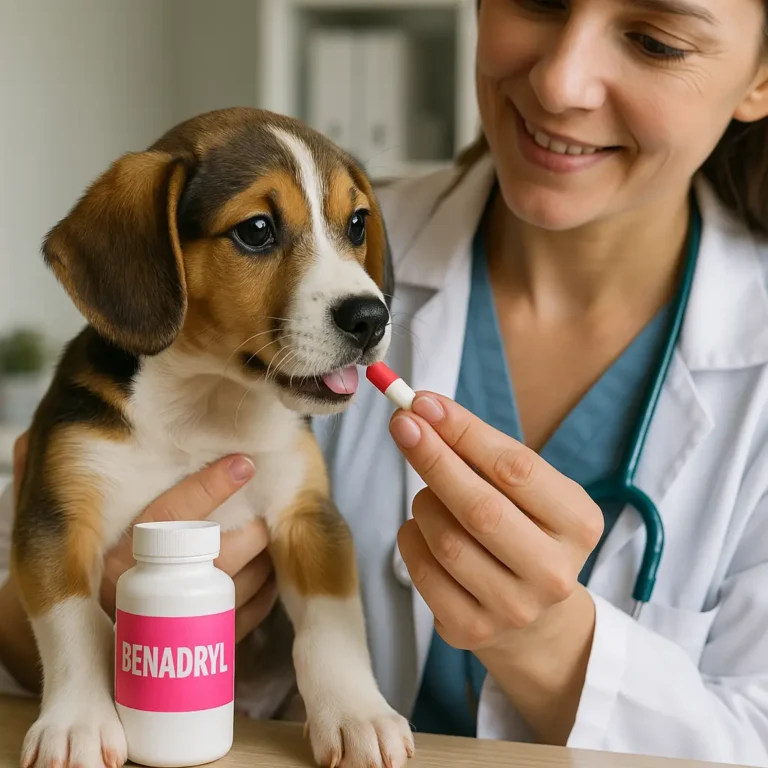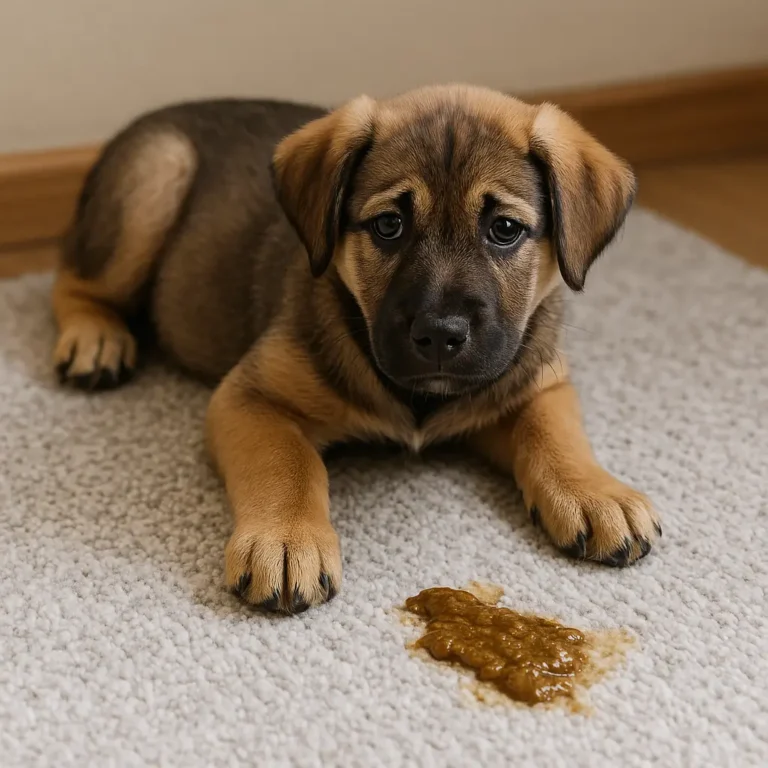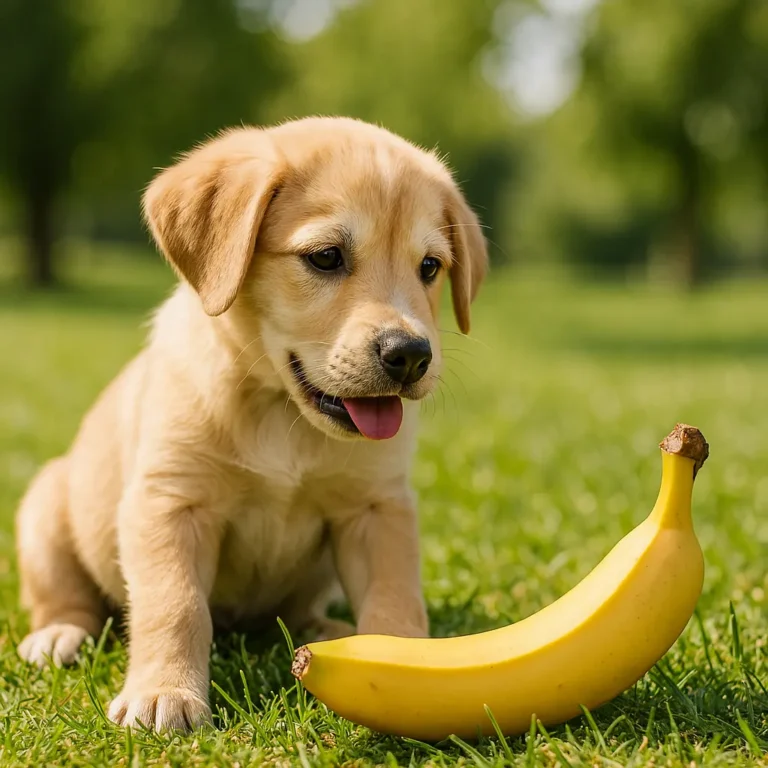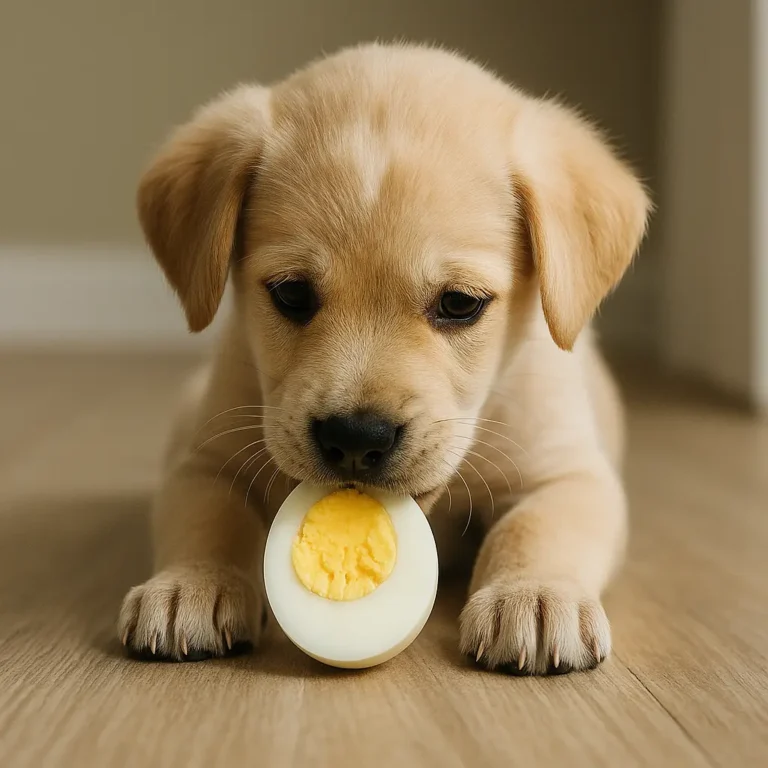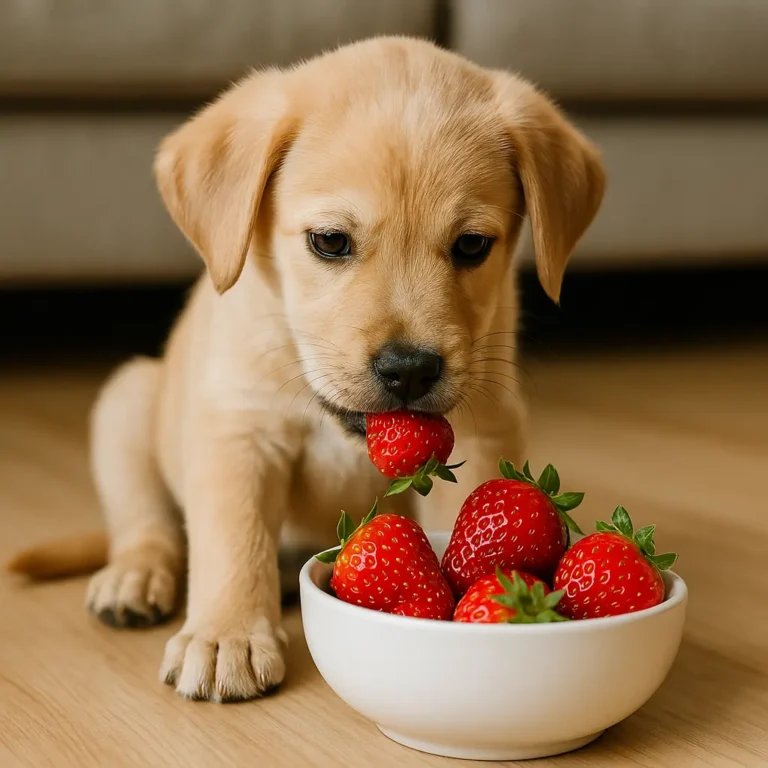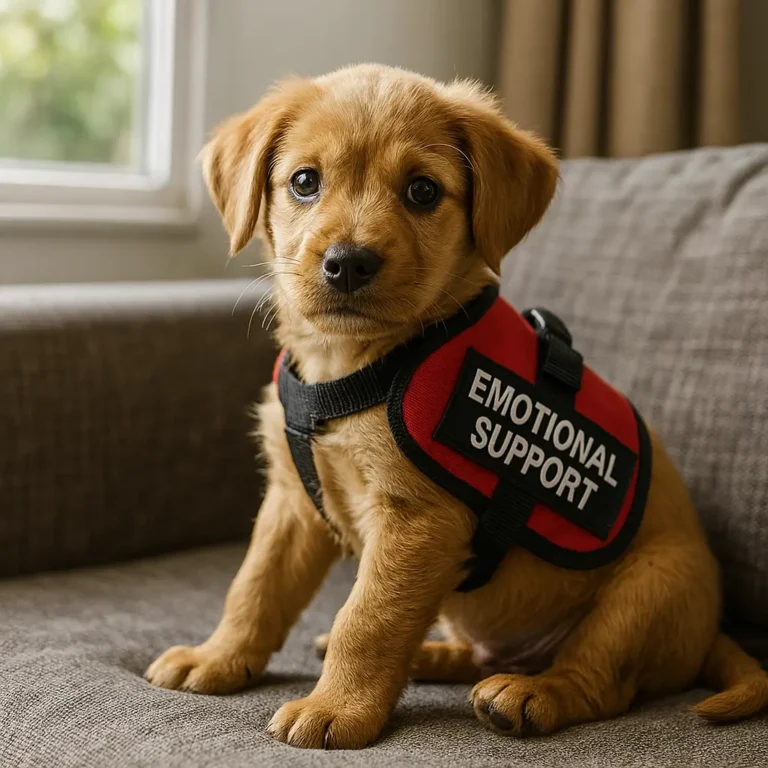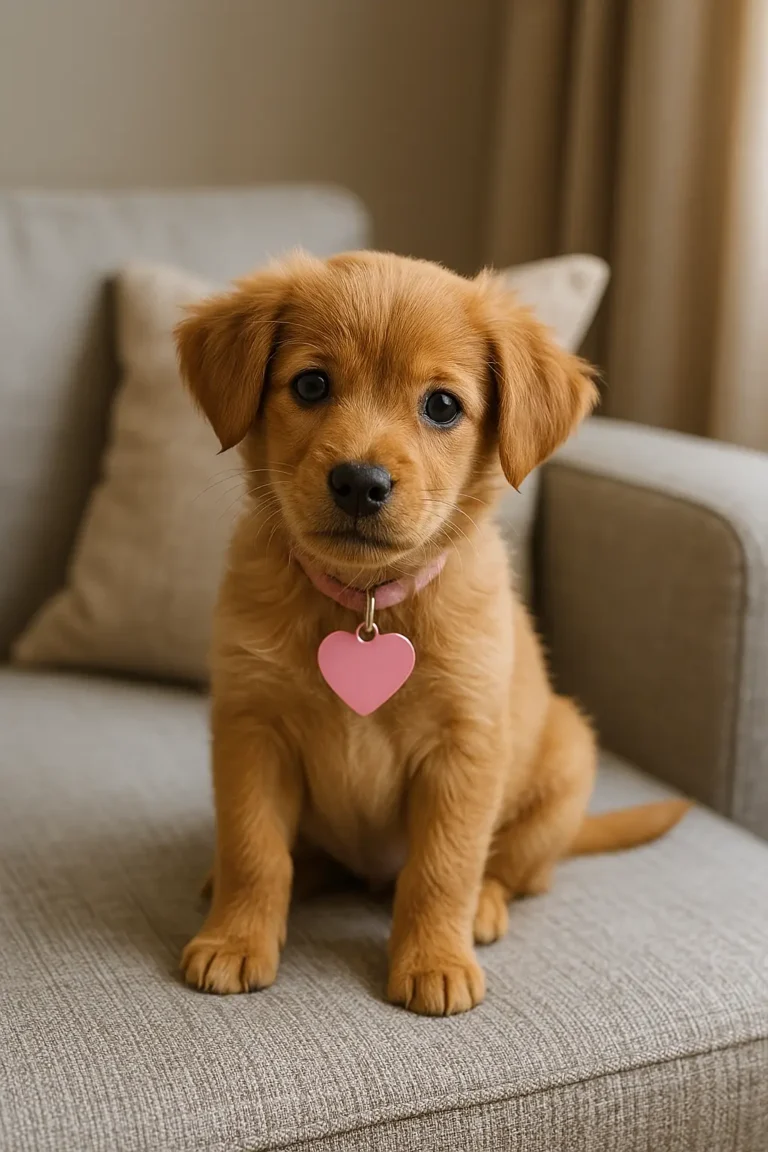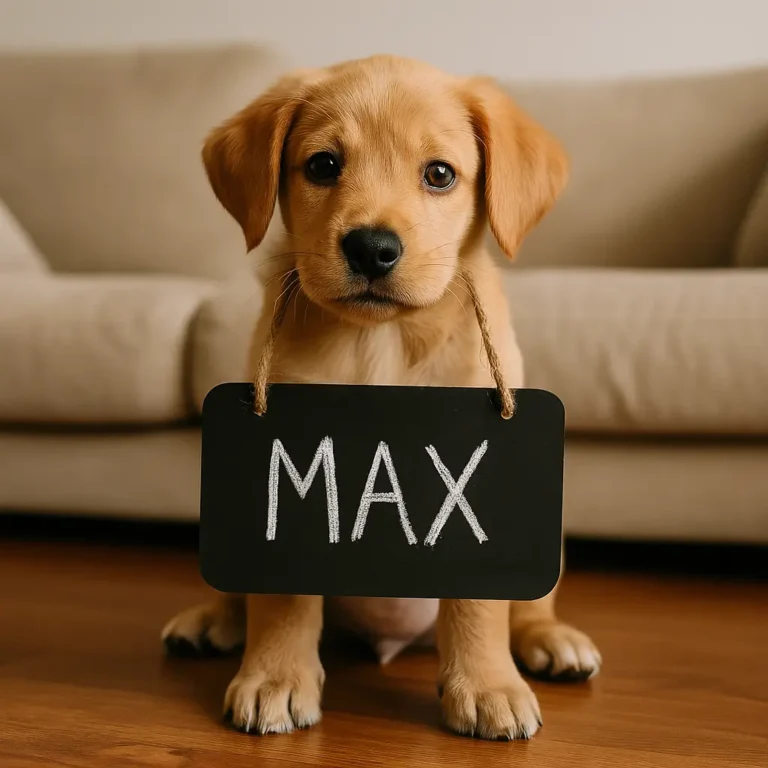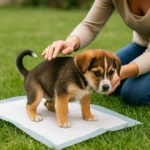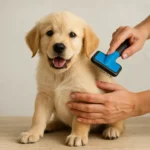Dealing with a nippy pup? You’re not alone. One of the most common challenges new dog owners face is figuring out how to stop a puppy from biting. Whether it’s playful nips or sharp little teeth clamping down hard, it can be frustrating—and even painful. But biting is a natural part of puppy development, especially during teething. The good news? You can teach your puppy bite control with the right strategies. In this guide, we’ll show you how to get a puppy to stop biting, what not to do, and which breeds bite more. Let’s turn those chomps into cuddles!
🐾 Why Do Puppies Bite? Understanding the Root of the Behavior
Before you figure out how to stop puppy biting, it’s important to know why puppies bite in the first place. The reasons are simple—but totally normal.
-
Teething pain: Between 3 and 6 months, puppies teethe just like babies. Chewing and biting help relieve discomfort.
-
Exploration: Puppies use their mouths to explore the world. Nipping is how they interact with objects, people, and even other dogs.
-
Play behavior: In the wild and in litters, biting is part of play. Puppies bite each other to learn boundaries.
-
Overstimulation or tiredness: Puppies can become mouthy when they’re too tired, excited, or frustrated.
While it may seem aggressive, most biting isn’t a sign of a behavioral issue. Still, it’s important to correct early—before it becomes an adult habit.
Understanding these triggers helps you get ahead of the behavior. You’ll learn not just how to stop puppies from biting, but how to create a calm, structured environment where biting isn’t necessary.
With time, training, and consistency, even the nippiest pup can learn good manners. Ready to learn how to stop a puppy from biting the right way? Let’s go!
🛑 How To Get a Puppy to Stop Biting Fast and Effectively
Looking for real solutions on how to stop a puppy from biting? These tried-and-true methods work wonders:
1. Redirect with toys
Always have a chew toy nearby. If your pup starts biting hands or ankles, immediately replace your body part with a toy.
2. Use positive reinforcement
When your puppy chews the right item, reward them! Use treats, praise, or a happy tone.
3. Time-outs work
If your pup keeps biting, stop play immediately and walk away. This teaches them that biting ends the fun.
4. Be consistent
Don’t let biting slide just because it’s “cute.” Everyone in the house should follow the same rules.
5. Socialize with other puppies
Puppies learn bite control best through gentle play with others. Puppy classes are great for this.
These methods are your foundation for learning how to get your puppy to stop biting in a calm, structured way. Avoid punishment—it doesn’t work and can backfire.
Patience and repetition are key. You won’t solve the issue overnight, but if you stay the course, you’ll soon enjoy peaceful, bite-free bonding.
Whether you're wondering how to get my puppy to stop biting or need help with teething tantrums, these tips will set you up for success.
While any puppy may nip, certain breeds are more prone to mouthiness during their early stages. Knowing this can help set expectations and guide training.
Breeds that often bite more as puppies:
Border Collies – High energy and herding instincts
Jack Russell Terriers – Naturally nippy and assertive
German Shepherds – Play-driven and protective
Labrador Retrievers – Teething and exploratory biting
Cocker Spaniels – Sensitive and sometimes reactive
If you’re working on how to stop puppy from biting, these breeds may require more time and consistency. But with patience, they become loyal, well-mannered companions.
🚫 What Not to Do When Trying to Stop Puppy Biting
While learning how to stop puppies from biting, it’s just as important to know what not to do. Here are common mistakes that can make things worse:
1. Don’t yell or hit
This may scare your puppy, creating fear-based aggression or anxiety. It teaches nothing constructive.
2. Don’t play rough games
Avoid tug-of-war or wrestling with your hands—it sends mixed signals and encourages biting as play.
3. Don’t use hands as toys
Never wiggle your fingers near a puppy’s mouth. It teaches them that hands are fair game.
4. Don’t reward the bite
If your dog bites and you laugh, pet, or give attention, you’re reinforcing the behavior.
5. Don’t wait too long
The longer you allow biting, the harder it is to correct. Start training early.
If you're asking, how to get puppies to stop biting, these "don’ts" are critical. Biting habits form quickly—and breaking them later is much tougher.
The goal is to train with positive reinforcement and consistent boundaries. Focus on teaching what’s allowed instead of punishing what isn’t.
Following these tips ensures you’re solving the issue—not creating a new one.
Grooming Tips
✋ Teach Your Puppy That Human Skin Is Off-Limits
One of the most important lessons in learning how to stop a puppy from biting is teaching that human skin = no-go zone.
Here’s how:
1. Say “Ouch!”
If your pup bites, let out a high-pitched "ouch!" to mimic how littermates react. This signals pain and often surprises them into stopping.
2. Stop interaction immediately
After the “ouch,” stop playing and turn your back or walk away for 30 seconds. This shows that biting ends all the fun.
3. Redirect to a toy
When they calm down, offer a chew toy. This helps them learn what’s acceptable to bite.
4. Stay calm
Don’t shout or punish. You’re not trying to scare them—you’re teaching them social limits.
Repetition matters. You’ll likely need to repeat this process dozens of times before it sticks. Puppies are fast learners, but consistency is key.
Wondering how to get your puppy to stop biting during playtime? This method is the foundation.
Over time, your puppy will understand that people are for cuddles—not chomping. Keep it positive, patient, and predictable.
Health Tips
🐾 Try Acting Like a Puppy—Yelp When It Hurts!
It might feel silly, but it works. One of the best tricks to stop puppy biting is to act like another puppy would.
1. Use your voice
When your pup bites too hard, let out a loud, high-pitched “YELP!”—just like a littermate would do during rough play.
This mimics natural dog communication and catches your pup off guard. Most puppies will immediately pause or back off.
2. Pause the play
After yelping, stop all movement and ignore them for a few seconds. This teaches them that biting = loss of fun.
3. Reinforce good play
When they return to gentle play or switch to a toy, praise them warmly or offer a treat. This helps reinforce calm behavior.
This method is especially helpful in the early weeks when figuring out how to get a puppy to stop biting during play or teething.
It’s important not to overuse the yelp, though—if you do it too often or without follow-through, your pup might just think it’s part of the game.
Combined with redirection, this trick helps your puppy learn bite inhibition fast—and naturally.
FAQ
How do I stop a puppy from biting my hands?
Is biting normal for puppies?
Can I use treats to stop puppy biting?
When should I worry about puppy biting?
Do teething puppies bite more?
How long does puppy biting last?
Should I crate my puppy for biting?
What’s the best toy for biting puppies?
Life Tips
Stop Puppy Biting the Right Way—With Patience & Practice
Puppy biting is frustrating, but it’s totally fixable. With patience, consistency, and the right training tools, you can quickly learn how to stop a puppy from biting and prevent it from becoming a lifelong habit. Whether you're dealing with teething nips or playtime chomps, understanding the root cause is the first step. From yelping techniques to time-outs and chew toys, each method builds bite control while reinforcing trust. So, if you’re stuck wondering how to stop puppies from biting, start with the tips in this guide—and stick with them. You’ve got this, and your pup will thank you! Ready to find out what dog breed are you? Let's get started!

